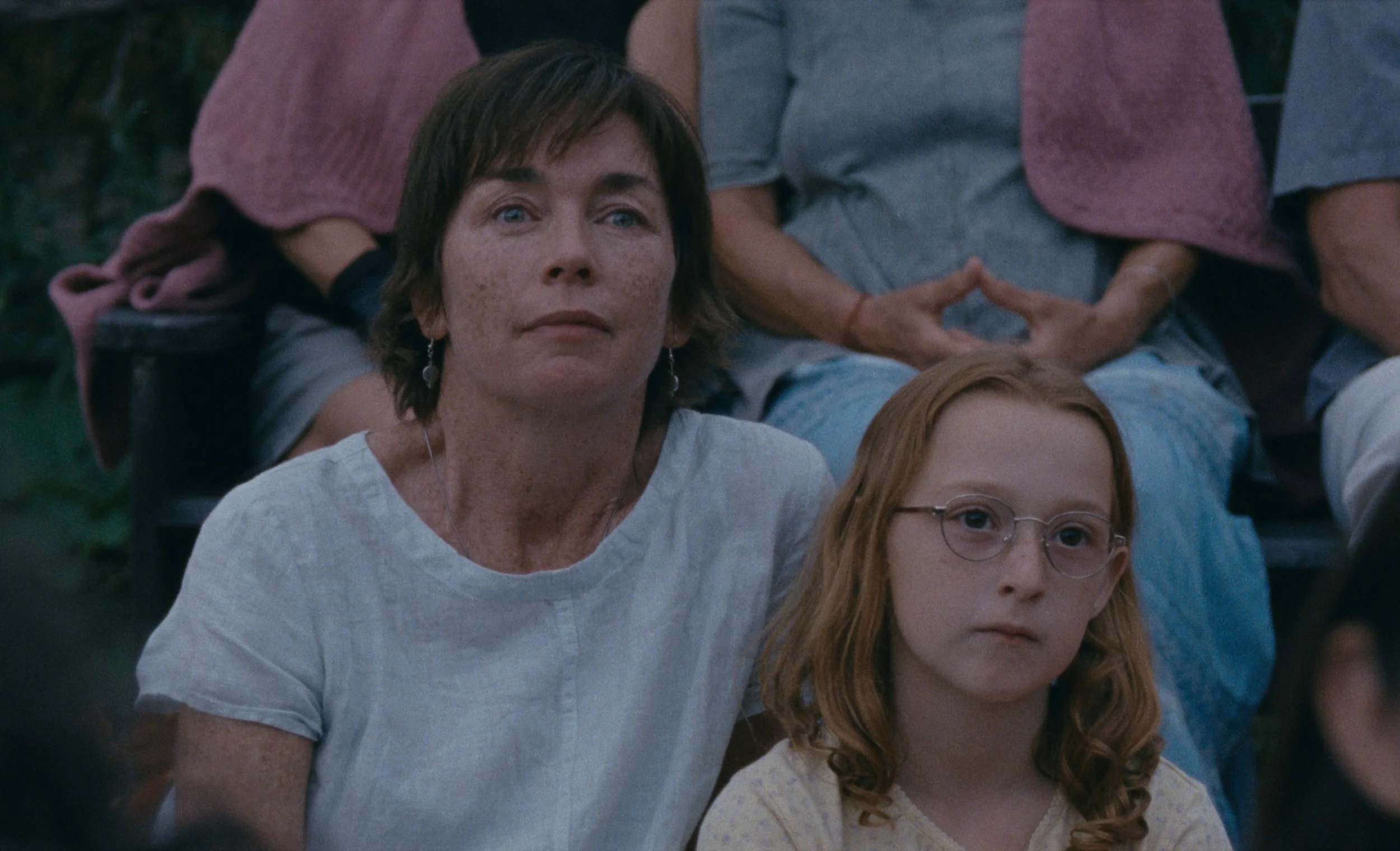MIFF 2024 Film Review - Janet Planet
Images courtesy of Common State.
Across cinema, glasses have taken on a myriad of meanings. They keep secret identities secret and make the smart look smarter but in countless coming-of-age films, they often signify the wearer’s impairment; women-led stories are no exception to this trope. Along with unkempt hair and an unfortunate dress sense, they are glamorously done away with as the heroine has an immense makeover and learns to flourish. However, in a rare semi-autobiographical film like Janet Planet, by a rare storyteller such as Annie Baker, glasses simply show that the protagonist is an acute observer. By extension, it rightfully enunciates the intense immersion one has in their world, and how women can gaze at one another, both of which Baker seems compelled to swim in, albeit to a slightly gruelling extent.
Through the Summer of 1991 in rural Massachusetts, the unapologetic yet awkward 11-year-old Lacy (newcomer Zoe Ziegler) is entrenched in the captivating orbit of her mother Janet (Julianne Nicholson). While three strangers pass through their lives, Lacy’s obsessive relationship with her mother comes into question as she witnesses Janet meditate on her understanding of love.
With each sound, shot, prop and action, Baker goes beyond the love letter this film sends to her childhood, as she cannot help but conscientiously beckon to the past with such truthfulness and attention to detail. Through cinematographer Maria von Hauswolff’s freshly verite and intimate style, the heavy use of diegetic sound and real props from Baker’s youth blooms a comforting and quiet sense of genuine place within the duo’s home and daily experiences, deterred only by occasionally mumbled dialogue.
In this meditative yet grounded sandbox, Ziegler and Nicholson both meet the screen with an open and lived-in presence. As they play through Hauswolff’s lens and Baker’s direction, they elicit intrigue by giving subtle definition to their gazes and their naturalistic delivery, at times with swift comedic timing, but always with a clear image of the feeling in that moment. Together, they craft a mother-daughter bond as strongly characterised by their silent, soothing moments as it is by their vocal, transparent ones, primarily driven by Baker’s diligent dialogue.
As she approaches each sequence, soft expression and sharp line with great care, the attitudes, relationships and dispositions of her characters come in tow. This comes with such precision that Baker explores themes of love, autonomy and family with great depth, as well as a willingness to allow her audience to investigate rather than serve it neatly; but in doing so, the writing loses itself in its quest to constantly develop dense meaning rather than introduce more to the narrative context. It dedicates lengthy sequences to subtexts whose overall relevance can become hard to gauge; while the character arcs don’t necessarily suffer for this, the value of such frustrating moments can feel unjustified.
Ultimately, the innate divide of the silver screen does not feel at all distracting while watching Janet Planet; with how immersive it immediately becomes, this film is almost akin to peering through a neighbour’s window, listening to them whisper to one another. More often than not, however, those whispers come a little too quietly, and attributing meaning to them can feel like an exhausting trek. Perhaps a different prescription would make it clearer next time.
Follow Elliot on Letterboxd and Instagram.
Janet Planet screened as part of the Melbourne International Film Festival, running in cinemas and online August 8th-25th.
For more info, click here.

